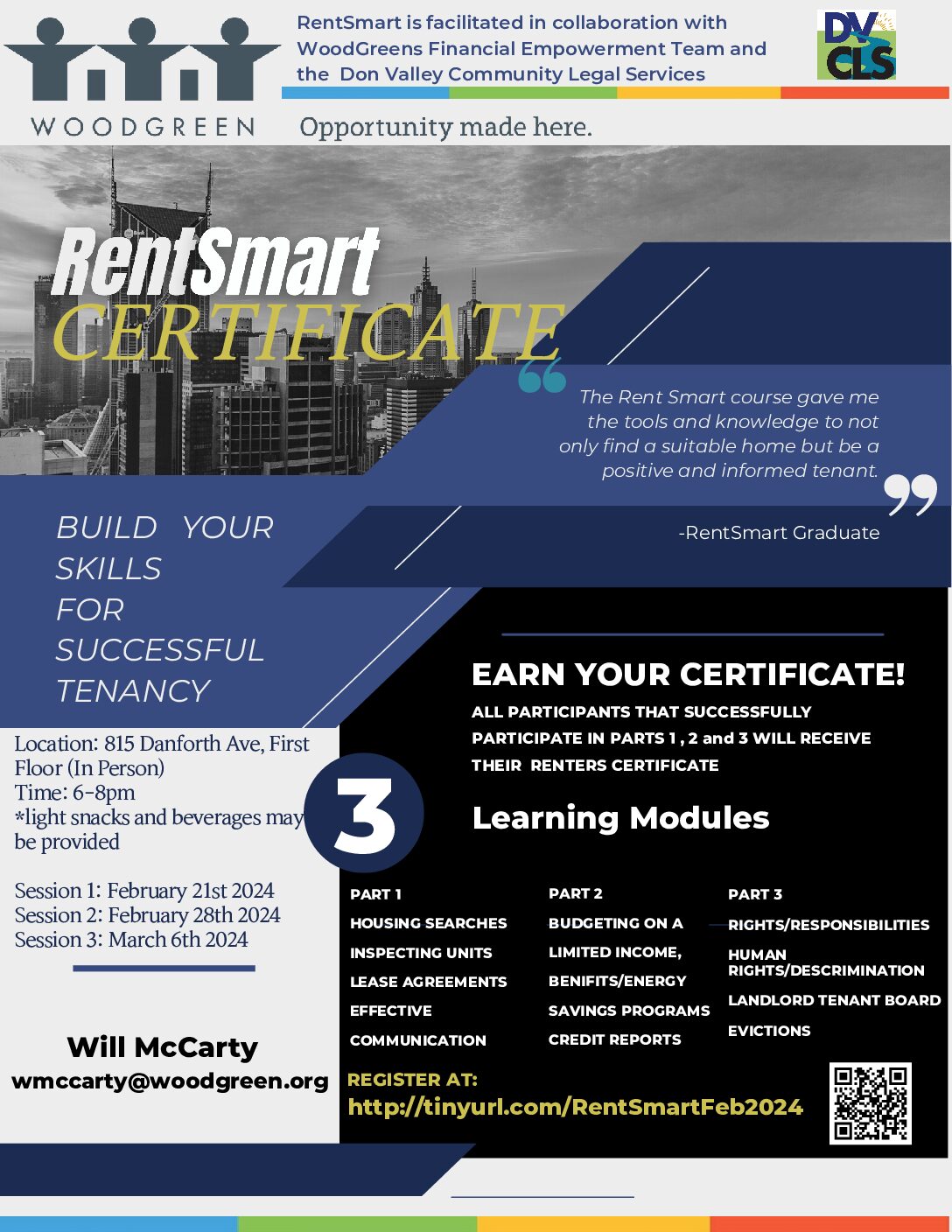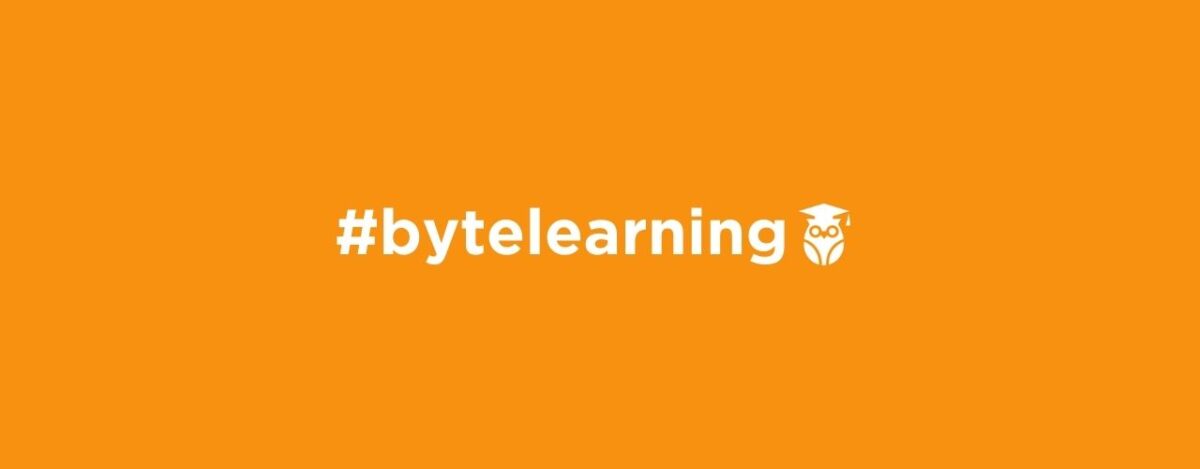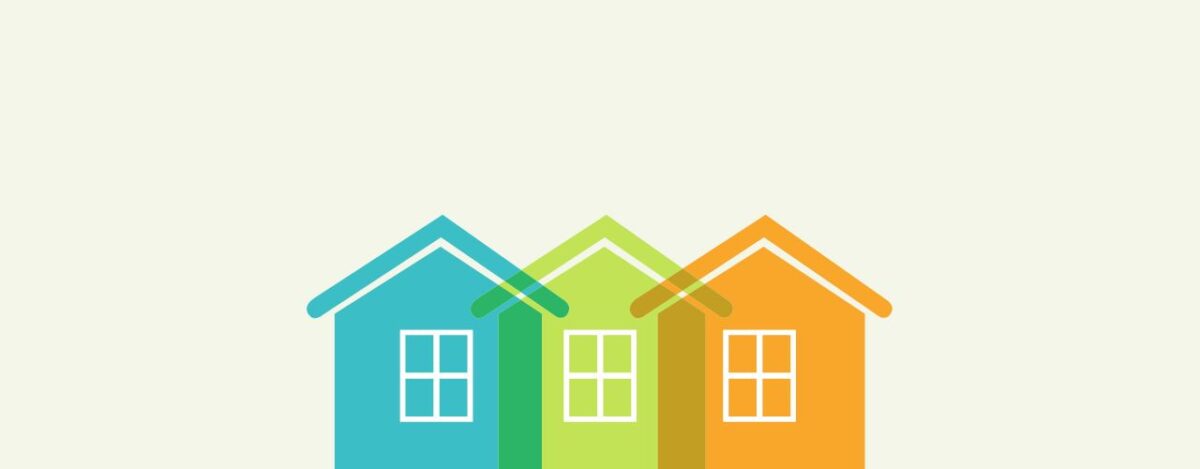On behalf of WoodGreen Community Services, we are excited to announce that we will be offering a winter session of Rent Smart starting in late February, 2024, co-facilitated by Will McCarty from our own Youth Housing Navigation and Subsidy Support Program, Stella Rose and Karen Hawes from our Financial Empowerment team and Karly Wilson, a housing lawyer and collaborator from the Don Valley Legal Community Services.
There are 6 modules in all, covered over the course of three sessions on topics designed to help young people identify and sustain housing in Toronto and the GTA. They are as follows:
1. Identifying and securing housing
2. What to look for in your search and how to view and inspect a unit
3. How to assess affordability
4. Considering types of housing (individual vs joint tenancies)
5. Types of agreements (standard leases vs subletting arrangements)
6. Landlord engagement – tips and tricks
7. Effective communication
8. Credit reports
9. Human rights and discrimination
10. The Residential Tenancies Act (RTA)
11. Rights, responsibilities and expectations under the RTA
12. Making a budget and filing taxes
13. What financial benefits are there to help?
14. Evictions and the Landlord Tenant Board
Please note that these sessions are open to all, regardless of age or background, but with a focus on youth aged 16-30 years old.
Those who complete all three sessions will receive a certification demonstrating their provincial tenancy knowledge. While participants are more than welcome to attend single sessions, all three must be completed in order to receive their certificate.
Please find the Information for These Sessions Below:
Time: Session Dates: Locations Details:
6:00PM – 8:00PM Wednesday February 21st Part 1 815 Danforth Ave – 1st floor
6:00PM – 8:00PM Wednesday February 28th Part 2 815 Danforth Ave – 1st floor
6:00PM – 8:00PM Wednesday March 6th Part 3 815 Danforth Ave – 1st floor
Attached you will find our flyer. If you have any questions regarding this training, please feel free to use the contact information on the flyer and we will respond as soon as possible.
Kind regards,
Erik




